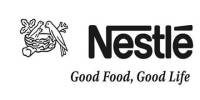Internship Experience at Citibank Limited Bangladesh
Citigroup’s history dates back to the founding of Citibank in 1812. Citigroup’s original corporate predecessor was incorporated in 1988 under the laws of the State of Delaware. In 1811 the U.S. Congress refused to renew the charter of the First Bank of the United States, the country’s central bank, which had branches in such cities as New York. Thus on June 16, 1812, some of the First Bank’s New York shareholders and other investors secured state incorporation of the City Bank of New York, which was later established in the branch banking rooms of the old First Bank.
The bank grew as New York City became the nation’s commercial and financial capital, and in 1865 it was chartered under the National Bank Act and renamed the National City Bank of New York. In 1897 it became the first large American bank to open a foreign department, and in 1915 it became America’s leading international bank upon the purchase of International Banking Corporation(founded 1902), which had 21 overseas offices in 13 countries and territories.
Citibank was formerly (1967–74) known as First National City Corporation, American holding company incorporated in 1967, with the City Bank of New York, National Association (a bank tracing to 1812), as its principal subsidiary. The latter’s name changed successively to First National City Bank in 1968 and to Citibank, N.A. (i.e., National Association), in 1976. Citicorp was the holding company’s popular and trade name from its inception but became the legal name only in 1974.
Following a series of transactions over a number of years, Citigroup Inc, was formed in 1998 upon the merger of Citicorp and Travelers Group Inc. Citigroup is a global diversified financial services holding company, whose businesses provide consumers, corporations, governments and institutions with a broad range of financial products and services, including consumer banking and credit, corporate and investment banking, securities brokerage, transaction services and wealth management. In 1812, Citi had a capital of US$ 2,000,000, 22 employees and operated only in 1 country having a single branch. After 200 years of operations, Citi in 2012 having exceeded a capital of US$ 1,913,902,000,000, employees over 260,000 and operating in 117 countries with 4,598 branches. Citigroup currently operates, for management reporting purposes, via two primary business segments: Citicorp, consisting of Citi’s Global Consumer Banking businesses and Institutional Clients Group, and Citi Holdings, consisting of businesses and portfolios of assets that Citigroup has determined are not central to its core Citicorp business.
Citibank N.A. commenced its journey in Bangladesh during 1987, with the opening of a representative office. The Bank opened its first full-fletched branch in Dhaka, on 24th June 1995. During the last 19 years through dimensional services Citi has become one of the major international banks in Bangladesh.
Service Offering
The bank is structured according to the four product divisions: Corporate Banking, Financial Institutions, Cash Management and Treasury. There are also four other departments that can be termed as support and these are Operations, Credit Administration, Financial Control and Human Resource.
Corporate Banking
Corporate Banking in Citibank is divided into two main segments:
GRB (Global Relationship Banking): Relationship Managers basically deal with the clients (multinational companies operating in Bangladesh) with whom Citibank has global relationship.
There is a single Parent Account Manager (PAM) in the country of origin of that MNC who is responsible for looking into the credit relationship between Citibank and the company worldwide. Any credit extended to the company has to be approved by the PAM. TTLC (Top Tier Local Corporate), as the name suggests is the segment in which only the top performers (basically the first three ranked companies) of any industry approaches to be Citibank’s clients.
Citibank provides both deposit products and loan products to its corporate clients. The loan products are of varying tenor and purpose. Citibank N.A. Bangladesh also provides structured finance products.
The main activities involved in Corporate Banking division of the bank include: communication with customers and calls. The Relationship Managers (RM’s) try to establish contact with key CBG customers; know about the status of their capabilities. The next step is to collect customer information and make a detailed analysis of the needs of the client matched with what the bank can offer. After agreement of both parties, the bank gets approval from the lending unit. Once companies have become a client with credit relationship, the RMs then have to monitor the performance of the company and ensure that no complexity of credit occurs.
Financial Institutions
The Financial Institutions department caters for the need of various banks and non-bank financial institutions as well as NGOs, not-for-profit organizations and diplomatic missions. The core product is the correspondent banking services. Besides there are various electronic banking services, which enable FI, clients perform large domestic and international transactions efficiently and safely. FI department mainly facilitates international trade conducted by Citibank N.A., Bangladesh. Citibank does L/C advising, confirming, transferring, guarantying and negotiating and reimbursing. In order to do so the FI department of the bank provides the local banks direct facilities or credit lines that includes OSTBT (Ordinary Short-term Banking Transaction), Local bill discounting, CTC credit line etc. Credit line for treasury purpose includes PSR facilities. Like the CBG Department, the FI-RMs also try to establish contact with FI customers. After that, the RMs collects customer information and make a detailed analysis of the needs of the client matched with what the bank can offer. After agreement of both parties, the bank gets approval from the lending unit.
Internship Experiences/Job
Citi’s Treasury & Trade Solutions Department:
Citi’s Treasury & Trade Solutions (TTS) business provides integrated cash management and trade finance services to multinational corporations, financial institutions and public sector organizations across the globe. With the industry’s most comprehensive suite of digital and mobile-enabled platforms, tools and analytics, TTS leads the way in delivering innovative and tailored solutions to its clients. Offerings include cash management, payments, receivables, liquidity management and investment services, working capital solutions, commercial and prepaid card programs, and trade finance.
Treasury & Trade Solutions is an integral part of Citi’s Institutional Clients Group, serving public sector clients, corporate and financial institutions in over 120 countries. Treasury & Trade Solutions’ innovative solutions help clients streamline and automate processes mitigate risk and expand their reach.
Cash Management:
Cash management is the family of products and services provided by the bank that helps the customer handle their account operations, sales collections, supplier payments, account reconciliation, and short term liquidity/investments. Cash management products impact the efficiency of a customer’s operating cycle.
Citi provides a wide range of innovative payable solutions that the clients can choose from. Apart from the convenience of no longer handling, writing and signing hundreds of checks manually, Citi’s payable solution provides flexibility of making payments online using Citi’s award winning online platform CitiDirect. Clients can either instruct Citi to issue Manager’s Checks/Demand Drafts or make EFT payments directly to its vendors’ bank account with any online bank under the Bangladesh Electronic Funds Transfer Network (BEFTN) platform. Citi’s payable management solutions ensure time savings in clearing of instruments as well as reduce manual errors and risk of fraud. Also noteworthy is that Citi Bangladesh was awarded the Best Corporate Internet Bank by Global Finance for the last five years in a row.
Citi also offers end-to-end collection solution for pooling client’s receivables from across the country in one single account maintained with Citi complemented by strong MIS support. Citi exercises its presence in all clearing zones in Bangladesh through its corresponding bank network. Citi’s Receivables Product Solutions include:
(1) Citicash: Cash or a/c to a/c transfer (Distributors deposit cash at Corr. Bank branches and initiate transfer request from their a/c to Citibank N.A’s a/c.
(2) Citiclear: Paper-based, Dhaka & Chittagong only. (Distributors deposit instruments at Citi branches or Citi’s Courier Service collects from distributors and deposits to Citi branches.
(3) Citispeed: Paper-based, Upcountry locations. (Distributors deposit instruments at Corr. Bank branches or Citi’s Courier Service collects from distributors and deposit at Corr. Banks.
(4) Citi E-Collect: EFT (Distributors initiate EFT to respective accounts or Citi’s Courier Service collects EFT instructions from distributors)
(5) Direct Debit: EFT (Clients initiate direct debit to pull funds Distributors a/c)
As Bangladesh migrates from instrument based to electronic media for transfer of funds, Citi has undertaken the initiative to be the market leader in the recently launched BEFTN platform. The first transaction in EFT of Citi was executed on February 28th, 2011- right on the launching date of BEFTN. Citi has continued to maintain stronghold on the EFT platform and is one of the major players in corporate payments. Citi is leveraging on the BEFTN capabilities to offer superior receivable and payment solutions to clients for smoother transaction execution and faster fund realization. Citi is also one of the leading market players in providing EFT Direct Debit solutions to corporate clients, as a mode of EFT collection for claims, generally those that are repeated over a period of time. Citi is offering direct debit services to its institutional clients and has so far benefitted thousands of individuals in facilitating their regular payments.
Trade Services & Finance:
Citi offers an integrated trade platform that comprises of end-to-end solutions ranging from simple Letters of Credit to complex structured trade models. Products covering imports, exports, guarantees are part of the regular trade offering. Citi also differentiates itself with its customized and tailored products suited for specific client requirements and its Export and Agency Finance Products. Citi’s employees round the globe work as a team to provide effective solutions to any trade challenge faced by clients leveraging the globe scope of Citi to the fullest.
Citi’s market-leading network spanning the globe, long-standing relationships with export credit agencies, development and multilateral finance institutions, and award-winning technology platforms enable clients to manage their supply chain in the most optimum and efficient way possible. Citi is regarded as an innovator and a pioneer in providing customized trade solutions and this has enabled it to stand out in a fiercely competitive environment like Bangladesh. Citi has been awarded “Best International Trade Bank in Bangladesh” four years in a row by Trade Finance magazine.
Description of the Job:
The bank where I was placed to complete my internship is not only a top multinational bank in Bangladesh but also a world class organization. Citigroup is a fortune 500 listed company and ranked 26th in the list as according to the year 2014. It has been a privilege for me to be a part of this institution. I was given immense responsibility along with delegated authority for which I never felt that I was a non-employee of the organization. The last three months has been a wonderful journey for me. I joined Citi as an intern on 7th September 2014 in the Treasury & Trade Solutions (TTS) department which is located at Citi’s country head office- 8, Gulshan Avenue, Gulshan-1, Dhaka-1212. The Treasury & Trade Solution department has two wings:
1) Cash Management
2) Trade Finance.
I had the opportunity to work for both the wings and apart from handling day to day activities my key responsibilities was mainly associated with the launch of nation-wide electronic payment roadshow- an initiative taken by Citi Bangladesh to transform its payment landscape from paper based to electronic mode.
Specific Responsibilities:
(1) Core member of the Electronic Payment Roadshow organizing team: I was given the responsibility to communicate with officials of corresponding banks (through which Citi Bangladesh does business due to its insufficient number of branches around the country) and clients of Citi in order to invite them to attend Citi’s nation-wide roadshow regarding electronic payment. Citibank N.A, Bangladesh has launched this Electronic Payment Roadshow through their inaugural session which took place at The Westin Dhaka on August 26, 2014. I was a member of the organizing committee and attended the roadshows which took place in Comilla & Mymensingh. I had to visit the venues, negotiate and book venues on behalf of Citi, facilitated payments and communicated with vendors regarding supply of equipments and materials so that everything went on smoothly both before and after the program.
(2) Formulated report based on the feedback received from clients and bank officials: After the successful completion of each event, I accumulated all the responses from clients and bank officials and created a report which consisted charts providing information such as the number of banks which were already aware of Electronic Funds Transfer, Banks which could initiate EFT’s through their branches or head office etc. All these reports were later sent to Bangladesh Bank as a symbol of Citi’s progress towards its commitment on transforming the country’s payment landscape from paper based to electronic mode.
(3) Reviewed Citi’s legal agreements with clients, vendors and corresponding banks: I reviewed Citi’s legal agreements and notified clients or vendors if the agreements needed to be renewed. I also developed an integrated database system so that my department could locate and track down agreement files in a quick and efficient manner.
(4) Worked with Trade Finance team in areas of:
-Trade Finance Risk Acceptance: Based on the instructions received from Trade Product Manager, I rated and ranked Citi’s clients in a range of some pre-specified ratings/metrics.
– Formulated and estimated L/C and amendment thruput and export collection and bill to determine the cash conversion cycle of clients. After completing all these tasks I had to report back to Trade Product Manager. It was a part of my day to day activities.
(5) Drafted Import/Export Policy, identified amendments, called, attended and shared opinions in group meetings, prepared slide on Contract Law Bangladesh, attended trainings provided to Non-employees: I was assigned to identify and draft down the changes in the Export/Import Policy, attended group meetings and expressed opinion regarding the events, prepared power point slide on Contract Law Bangladesh and distributed among line managers. Also attended compulsory training provided to nonemployees such as Citi’s Code of Conduct, Anti-Money Laundering, Sanctions and AntiBribery & Corruption Annual Training.
Learning outcomes
The three months of my internship program was actually a total learning period. Previously, I had worked as an Assistant of a Professor of my institution but I did not possess any multinational corporate experience and that is why it was a life time opportunity for me to learn from a diverse group of multi-talented employees.
(1) Best practices: As a multinational bank, Citibank, N.A follows a combination of the best practices followed both internally and globally. Citi also provides basic trainings to both employees and non-employees such as Citi Code of Conduct which guides employees and non-employees regarding any decision they make.
(2) Information sharing policy: Citi is strictly aware about sharing any information to both internal and external parties. I had received training on how to preserve Citi’s information and what necessary steps I need to follow if in case any discrepancies occur.
(3) Taking accountability/responsibility: I never felt myself as an intern of the bank. I was vested upon with such responsibilities which Citi usually does not provide to nonemployees.
I could participate in some decision making, express my opinions, suggest changes, was allowed access to potential clients and many more. However, I maintained high confidentiality and always escalated issues to my line manager which were not pertinent to me.
(4) Accepting challenges: Working at a world class organization like Citi means you will always need to be prepared for taking challenges. There were times when work pressure was immense and within that time frame came unforeseen challenges which needed to be responded quickly. I observed my line managers on how they make decisions in times of crisis and tried to adapt those techniques. I used my human resource skills in order to adapt myself to changing situations. Being a multi-skilled always helped me to stay one step ahead.
(5) Confidence building: Since I was working under several line managers holding key positions of the organization, meeting deadlines became a regular activity. This has helped me to nurture my confidence level.
(6) Customers are the first priority: Every year Citi organizes two consecutive day long program known as ‘A Day at Citi’ where Citi invites its clients and takes them to each department to demonstrate how things are done at Citi. If any clients have any complaints/query regarding a particular operation of a particular department/employee they can immediately solve it by stating it on the event days and thus that particular department along with the department head becomes liable and accountable to resolve the issue. This is how Citi differentiates from its competitors. They are committed towards excellent customer service.
Critical observations:
Treasury & Trade Solutions is one of the main functional departments of Citibank N.A, Bangladesh. They are the front face of the organization since they directly deal with clients/customers. The department generates the maximum revenue for the bank and holds the highest performance ratings. It is a small team and the most significant in case of generating business. Their customer base is huge and to serve them properly the department needs to constantly think strategically.
(1) Insufficient manpower: Treasury & Trade Solutions team has immense work load with a minimum manpower. I observed that some of the key managers had been serving the role of two-three positions alone and this is being continued for years.
(2) Lack of appreciation and motivation: I had observed that not all managers appreciate their subordinates for their performances and thus this leads to a lack of motivation.
(3) Sanction issues: Citibank N.A, Bangladesh is confined with strict policies of trade which is governed by USA. In addition, being a cluster of Citi India makes it difficult for Citi Bangladesh to operate independently. Moreover, in Bangladesh the bureaucratic nature of policies regarding trade ultimately creates significant challenges for the bank to operate efficiently. To please both their mother company and local Government they need to abide by every rules associated with the banking industry. Thus, for such limitations they cannot serve a specific segment of customers.
Recommendations:
(1) Recruiting manpower to ease work load: To eliminate the shortage of manpower and to minimize workload, Citibank needs to hire new employees. As a multinational corporation with huge customer base requires efficient work flow and proper channeling. Moreover, to ensure customer satisfaction and to hold on to the commitment of excellent customer service Citi needs to bring on additional talents to its platform.
(2) Appreciating and motivating employees: It is undoubtedly true that working in a multinational bank in context to Bangladesh means a lot of work load. However, employees are humans and they need some sort of appreciation and motivation to perform well. If there is no motivation then the employee turnover will increase and this is not what Citi will ever want to happen. Thus, Citi Bangladesh needs to look onto this issue.
(3) More independence required: It is been seen that Citi Bangladesh needs to go through several rules & regulations or policies while conducting businesses. This bureaucratic nature slows down business operations and thus involves time & money. Citi may address and escalate this issue to its parent company in order to ensure smooth flow of business operations.
Conclusion:
Citi Bangladesh has been a front runner in promoting Electronic Funds Transfer to its clients and their payers since the inception of the system. Currently, it processes approximately BDT 260 Crore of payment through EFT every month and receives BDT 240 Crore of incoming EFT in favor of its clients. All such payments are part of the business to business cycle of the economy and contribute directly towards faster fund realization and release of goods. Citi has already conducted three workshops regarding electronic payment in Dhaka, Comilla and Mymensingh and plans to conduct two more in the country’s major collection and payment centers to raise awareness and to influence clients across the country and distinct level branches of banks to perform their financial transactions through electronic mode. With these initiatives Citi hopes to stimulate further utilization of the EFT system across the country in conjunction with the digital initiatives of Bangladesh Bank. The global giant has been the pioneer in EFT landscape and with its award winning online banking platform ‘Citidirect’ and expertise in EFT payments; Citibank N.A provides the best solution in the BEFTN landscape of Bangladesh. While a leader leads others follow and that is what Citibank has shown to other banks in Bangladesh. I believe, Citibank N.A will continue its trend of being one of the leading MNCs in Bangladesh by continuously driving its growth year after year.















